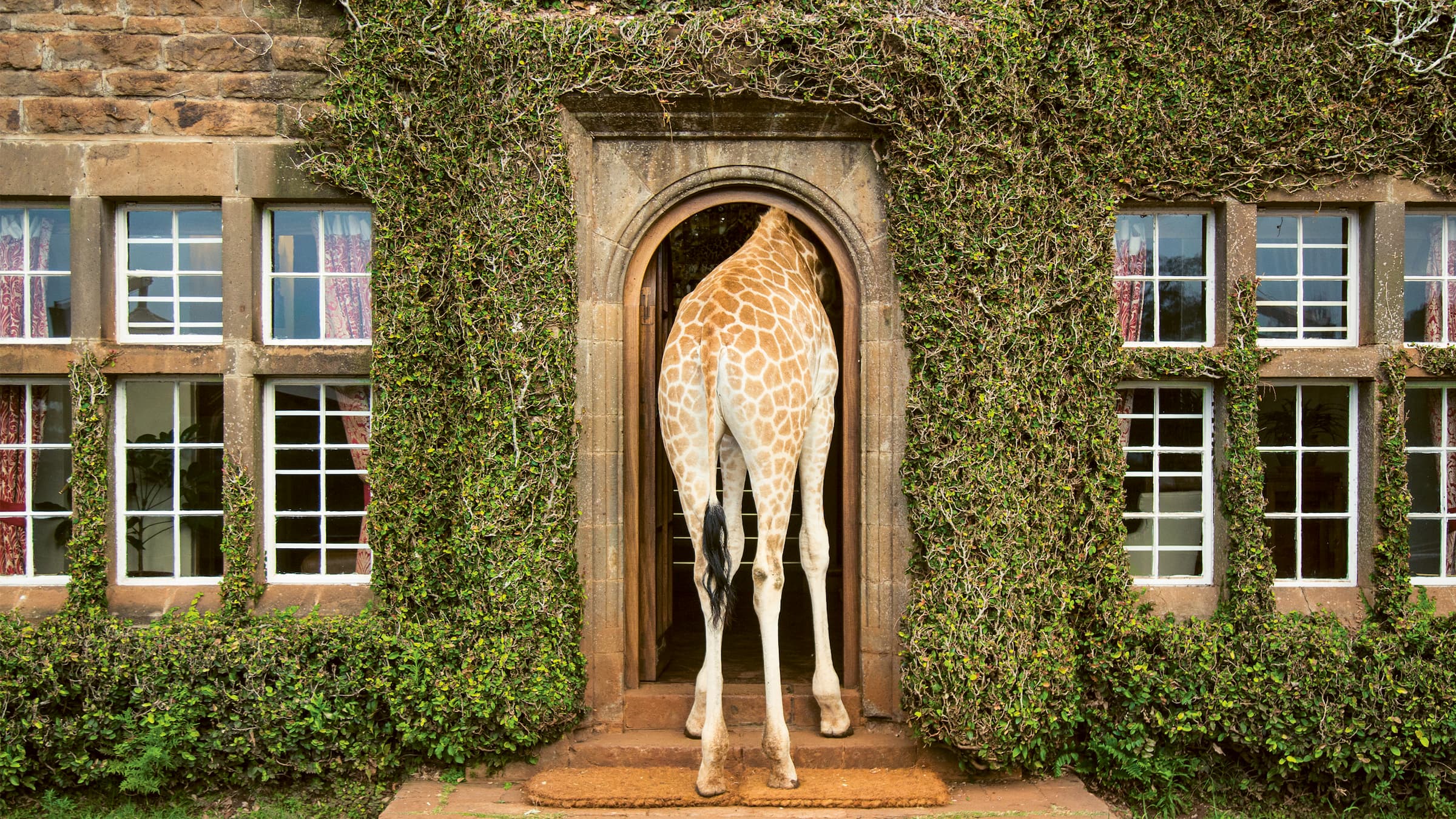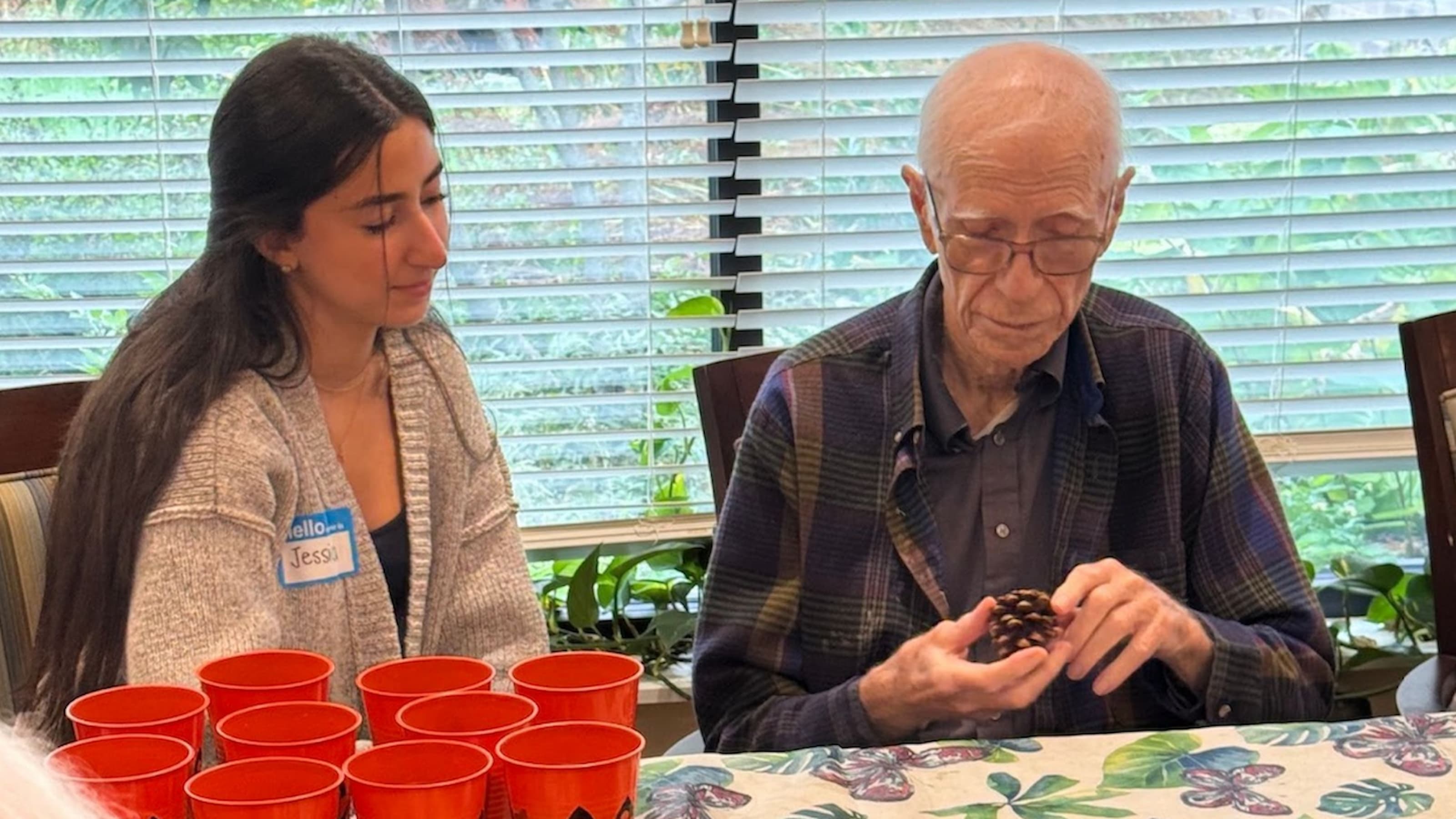Saint Joseph’s Interns Help Middle Schoolers Prep for Model UN
As part of the Global Smarts Mentoring Program, Saint Joseph’s students mentor middle schoolers to prepare them to participate in a Model UN conference.

KEYS TO THE ARTICLE
- Students participating in Global Smarts collaborate with the World Affairs Council of Philadelphia (WAC), where they are trained as mentors to 6-8th graders in Philadelphia area middle schools in economically underprivileged communities.
- Every Friday, the St. Joe’s students go to the Council in Center City, Philadelphia, where they are provided with the next week’s lessons, along with a curriculum containing particular content or a skill.
- The Global Smarts program was recently awarded the Philadelphia Higher Education Network for Neighborhood Development (PHENND)’s 2020 Lindy Award for Excellence in K-16 Partnerships.
The thought of participating in a model UN was daunting to Madison Card, ‘21.
“We didn’t have model UNs at my high school, so I had no experience with them,” she explains. “I had to learn how everything worked, and what the terms were.” But then came a task that was just as challenging. “I had to have enough understanding to teach these things to middle school students a day or two later.”
Card is a member of Saint Joseph’s Global Smarts mentoring program, a course in the political science department that also serves as an internship. Students collaborate with the World Affairs Council of Philadelphia (WAC), where they are trained as mentors to 6-8th graders in Philadelphia area middle schools in economically underprivileged communities.
The goal is to prepare the middle schoolers to participate in a Model United Nations conference. In a Model UN, students – or “delegates” – are split into committees and assigned certain countries to represent. Each committee is given specific topics to research and discuss, in order to come up with resolutions. During the conference, the committees debate each other and vote on which resolutions to pass. The best-performing committees and delegates will sometimes win awards.
The collaboration with Saint Joseph’s and the World Affairs Council began seven years ago, when Susan Liebell, Ph.D., associate professor of political science and pre-law advisor, was approached by Dana Devon, the Council’s head of programming, and a former adjunct at SJU.
“The WAC holds a model UN each year that is open to any middle school – sixth, seventh and eighth graders from schools like Gesu School, to recently created charter schools,” Liebell says. But this equal opportunity program only highlighted the disparities between the privileged and less-privileged schools. “It wasn’t enough to have equal opportunity,” Liebell says. She explains that the privileged schools had more money to spend on books, computers, classes, and trips that better prepared them for the Model UN competition.
When Devon realized this, she reached out to Saint Joseph’s, and was put in touch with Liebell. “Dana wanted to empower students from less-privileged schools by bringing in college students who would spend months preparing them and building their skills and content knowledge,” Liebell says. “The college students would encourage the middle schoolers that they’d be full participants during the Model UN.”
Every Friday, the St. Joe’s students go to the Council in Center City, Philadelphia, where they are provided with the next week’s lessons, along with a curriculum containing particular content or a skill. The St. Joe’s students need to take that lesson from the Council, tailor it, add creativity, and then take it into the middle school classrooms to teach. The next Friday, the students report back to the Council on how their lessons went.
“I had to learn how everything worked, and what the terms were… I had to have enough understanding to teach these things to middle school students a day or two later.”
Madison Card '21
“My favorite part was going into Center City, because I felt like an adult, taking the train, and wearing a shirt and tie,” says Caleb Kearny ’20, who participated in the Global Smarts program his sophomore year. “I also liked going into the classrooms at the schools. It was cool, because it’s not very often that college students form bonds with middle school students. Those worlds are never really together.”
Each year, the Council chooses two subjects, such as the impact of women’s education or water conservation. The subjects are the same for all of the students in the Model UN program. Then a particular school will be assigned a certain country. The Saint Joseph’s mentors split the middle schoolers into groups, and each group focuses on one subject. “My school was split into two countries – Saudi Arabia, and Brazil,” Card explains. “Those countries were then split down into two committees that focused on different issues. So there were four groups that I had to help out.”
Global Smarts also contains an academic component for the St. Joe’s students. “They’re reading books about structural inequality, or women’s education in Ethiopia,” Liebell says. “They’re writing daily journal entries that are profound and moving about their experiences teaching. Many are scared at first. They write about how they doubt themselves, and then they have this ‘Aha!’ moment, where they’ve learned how to communicate with their students, and found their strengths.”
The Global Smarts program has developed from primarily serving the political science department and international relations to broadening its availability to students in other programs, such as international business, marketing, communications, history, Latin American studies, and faith-justice studies. “Global Smarts also exposes students to other career areas [besides teaching], such as working at a nonprofit, public speaking, research, and content area expertise,” says Scarlett McCahill ‘06, M.S.Ed., an adjunct professor of political science. “Internships are also about finding out what you do not want to do, which is information just as valuable as discovering what you love.”
“I’d encourage anyone at St. Joe’s to participate in this program, not just political science majors,” says Bernadette Crehan, ’20. “It’s good to get out into the community and give back. It’s an experience everyone should have.” Crehan participated in the Global Smarts program during her sophomore year, and was surprised at how excited her students were about what they were learning in the Model UN program. “They had so much energy! They were a little goofy, and had a thousand questions,” she says. “But my favorite part was to see how excited they were to learn abstract subjects, like sustainability, or global hunger. I’d be afraid my PowerPoint presentations would bore them, but it was just the opposite.”
“It was cool, because it’s not very often that college students form bonds with middle school students.”
Caleb Kearny '20
Not only is Global Smarts intended to be a true teaching experience for the students, but it is also designed to be eye-opening about the disparities in the world around them. “I was excited for the community aspect,” Crehard says. “I served at St. Rose of Lima, five minutes from campus, and already that feels like a different environment. Global Smarts is a good way to disconnect from the feeling of suburbia, and to get back into why I wanted to go to Saint Joseph’s, and why I love Philadelphia as a city.”
This year’s in-person meetings and Model UN conference were cancelled because of COVID-19. But St. Joe’s students contacted faculty at the middle schools, and many were able to move their classes into virtual sessions. They developed their own lesson plans and curriculum, and gave them to the middle school faculty to deliver. In the end, the Council facilitated formal conferences for each school, which signified the culmination of learning, and a celebration in honor of completing the program for the middle schoolers.
On June 1, the Global Smarts program was awarded the Philadelphia Higher Education Network for Neighborhood Development (PHENND)’s 2020 Lindy Award for Excellence in K-16 Partnerships. PHENND advocates for community-based service learning in the Philadelphia area. Global Smarts shared the award with the World Affairs Council, thanks to the advocacy of McCahill and Kristin Hutchinson, the Vice President of Education at the Council.
But for the individual students involved, the program has already brought myriad rewards.
“During the Model UN conference, I was running from room to room, making sure my students were all right,” Card says. “Each group had to come up with solutions – or resolutions – to the problems posed. There are hundreds of resolutions written, and only a few get picked. My students got their resolution picked… and three students won awards.”



